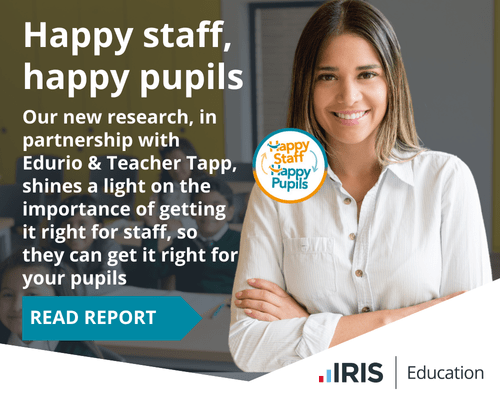
Kelly Gallafant, child wellbeing expert, explores the methods that can be used in schools to help build pupil confidence post-pandemic
CREDIT: This is an edited version of an article that originally appeared on Hope Education
Each and every child has had a different experience of the pandemic. Some appear to have thrived, and walk through the classroom door painting a happy, colourful picture of life in lockdowns, while, others communicate that they have struggled being confined within their four walls, appearing to carry a heaviness with them.
Regardless of which side of the fence children are on, one common issue I have seen time and time again is the detrimental effect that lockdowns have had on children’s self-esteem and confidence; many children are often not aware of their worth and appear to have a negative view of themselves.
Children have been indoors and isolated for months and peer-to-peer interaction has been via screens, if at all and talking in front of a group was a thing of the past. Home life may have been challenging at times, with many parents having to juggle work and home learning. Is it, therefore, any wonder that answering questions, playing in groups and having the courage to raise a hand to voice an opinion, now seems to be hugely daunting?
Before getting too focused on the academic side of learning, let’s support those little characters to believe in themselves again, to develop their self-esteem and build back those confidence levels.
How to build self-esteem and confidence in primary school children
Have a regular feelings check-in
Children will often feel worried when they notice a big emotion such as fear. Encouraging them to share their feelings not only allows children to feel heard, but also enables them to see that they are not alone; there is nearly always another child (or two) feeling the same way.
It may be that you choose to do this as a whole class at the start of the day, or in smaller groups, but begin with your own feelings check in, and then ask if anyone in the group would like to share a word or visual to describe how they are currently feeling. I love using emotion tokens to support this activity – they are a fun visual cue, especially on days when children are having difficulty articulating how they feel.
Play team games
Break times can be intimidating for children who are experiencing low self-esteem. Guided team games are a brilliant way to help them integrate into the group, whilst also building trust and rapport; they are a wonderful way to help children acknowledge that they too have a lot to offer the group.
There are lots of options here, but classics such as tug of war and balloon races always raise a smile, or why not try the Talking Tower – a brilliantly fun activity that can be played in small groups.
Introduce opportunities for children to teach/share their knowledge
Many children have a favourite fictional character. Some know all there is to know about dinosaurs. Perhaps you know a child who can say the alphabet in Italian, or another who can name six types of garden bird. Why not think along the lines of TV’s Mastermind and allow children to share information about their specialist subject with you, and the wider group.
Invite them to take part and allow them the opportunity to be teacher for 2-3 minutes; this can be done in groups or as individuals. Ensure that you provide feedback such as ‘Thank you for sharing that today, I did not know that about Harry Potter’ Or, ‘You have taught me so much about dinosaurs, thank you.’
Encourage them to get to know themselves
Begin a new classroom ritual and start or end every day by posing one of these questions:
- What did I do today that I’m proud of?
- What am I most thankful for?
- What do I feel was successful today?
- What can I focus on tomorrow to help my mind to grow?
Prompting the children to explore these questions encourages small steps in helping them realise that they have incredible, unique powers within them; they could discuss, draw, or write down their answers.
You could take this a step further and encourage children to complete their own wellbeing journals. Understanding me – A Mental Wealth Journal offers plenty of engaging activities to help build self-awareness and self-esteem.



Be the first to comment